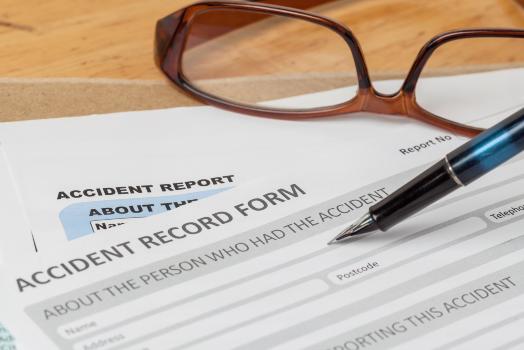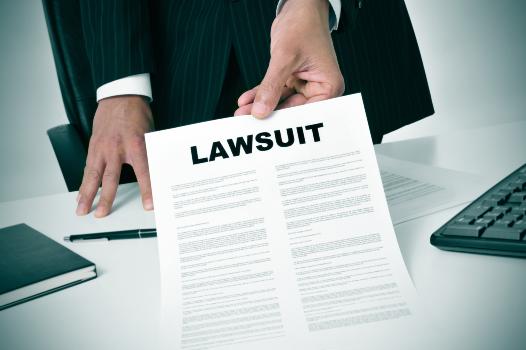Car Accident Compensation For Pain And Suffering in Ontario, Canada
Claiming Car Accident Compensation For Pain And Suffering in Ontario, Canada
In Ontario, compensation for pain and suffering is a legal process that requires the assistance of an experienced lawyer. Essential advice for obtaining compensation in Ontario can help individuals understand the basic principles of this complicated system and what steps to take when seeking financial reparation for physical or emotional injury. Pain & Suffering Compensation laws vary from province to province, so it’s important to familiarize yourself with them before attempting to pursue a claim. This article will provide essential advice on how to obtain pain & suffering compensation in Ontario, as well as why consulting a lawyer is often necessary in such cases.
- Guide to Claiming Car accident compensation for pain and suffering in Ontario
- How a Lawyer Helps Filing a Pain and Suffering Claim Following a Car Accident in Ontario
- Don’t Make These Mistakes When Seeking Pain and Suffering Compensation From a Car Accident in Ontario
- The Rights of Victims of Pain And Suffering From a Car Accident in Ontario
- Facts on pain and suffering compensation following a car accident in Ontario



Claiming Car accident compensation for pain and suffering in Ontario, Canada
Guide to Claiming Car accident compensation for pain and suffering in Ontario, Canada
Ontario Car Accident victims are entitled to compensation for pain and suffering damages. This includes physical, emotional, and psychological injuries resulting from a motor vehicle accident.
The process of recovering these damages can be complex and overwhelming, depending on the severity of the injury. To guarantee that an individual is justly rewarded, it’s imperative to be aware of the legal framework in Ontario and how it pertains to car accidents. Here is a general overview of car accident compensation for pain and suffering in Ontario:
First, you must establish your entitlement to recover damages for pain and suffering. To bring legal action, you must be able to show that another party is the primary cause of your accident-related injuries. This requires evidence that identifies their fault in causing the incident. This may mean proving that another driver was negligent, either by violating the rules of the road or showing carelessness in their driving behaviour.
After demonstrating that a third party is responsible, you must consider whether insurance policies are available to compensate for your expenses and losses. Depending on the nature of the accident, this could include liability insurance, uninsured motorist coverage, or other forms of coverage such as no-fault benefits or public health insurance.
Now that you fully grasp your pain and suffering, it’s time to calculate how much compensation is due for all the losses incurred. In Ontario, provincial regulations regulate compensation for pain and suffering, limiting the damages one can receive. Knowing the general rules and principles related to assessing damages is critical for obtaining a successful outcome.
Finally, it would be best to determine how much money you owe for your injury. In Ontario, if you are involved in a car accident, you will likely be eligible to receive financial compensation from the at-fault driver or an insurance company for any damages and losses incurred. This includes economic (e.g., lost wages) and non-economic (e.g., pain and suffering) damages. Compensation for an injury depends on the gravity of the harm suffered and other pertinent regulations.



Filing a Pain and Suffering Claim Following a Car Accident in Ontario, Canada
How a Lawyer Helps Filing a Pain and Suffering Claim Following a Car Accident in Ontario, Canada
When you’ve been in a car accident while driving in Ontario, you must reach out to an experienced lawyer who can assist with your claim for emotional distress damages. Pain and suffering claims seek compensation for a person’s physical and psychological injuries due to another’s negligence. An experienced lawyer will be able to assess the circumstances of your case, evaluate the damages suffered by you, negotiate with insurance companies on your behalf, litigate if necessary and achieve maximum compensation for you.
For those seeking financial compensation for pain and suffering following a car accident in Ontario, it is essential to fulfilling the criteria. First, the injury must be considered serious enough to justify making a claim – minor scrapes or bruises do not qualify for this type of compensation. Second, there must be proof that another person’s fault or negligence caused the injury; if you were solely responsible for the accident, making a pain and suffering claim will not be possible. Finally, it is necessary to provide evidence that outlines the impact of the injury on your life in terms of lost wages and medical expenses, as well as any psychological trauma suffered.
When you employ the services of an established lawyer, your case will be in reliable hands, and you can trust that to maximize your chance of victory. Your lawyer will be able to identify all potential sources of compensation and will work with insurance companies to negotiate a fair settlement on your behalf. They will also have experience representing clients in court proceedings if negotiations fail.
To protect your rights and interests following a car accident in Ontario, contacting an experienced lawyer who can help you file a pain and suffering claim is highly recommended. Your lawyer will be able to provide tailored legal advice specific to your situation and increase the chances of achieving fair compensation for the damages caused by accident. For more information, please do not hesitate to contact an experienced lawyer today.



Seeking Pain and Suffering Compensation From a Car Accident in Ontario, Canada
Don’t Make These Mistakes When Seeking Pain and Suffering Compensation From a Car Accident in Ontario, Canada
When seeking compensation for pain and suffering from a car accident in Ontario, you must be aware of the common mistakes you could make. To ensure that your claim is successful, knowing what not to do when claiming pain and suffering damages after an auto accident is paramount.
To ensure you receive just compensation for the emotional and physical pain that results from an automobile accident in Ontario, be aware of these common pitfalls:
- Failing to document the details of the incident
It is essential to document all the accident details, including the date, time and location. You should also take photographs of any damage caused to your car or other property and keep copies of any police reports related to the incident. - Failing to seek medical attention immediately after the accident
Even if you experience no pain immediately after the accident, it is vital to get a medical examination directly. Maintaining your wellness is paramount in this day and age; should physical or mental unease present itself, evidence of you caring for yourself will be available. - Postponing filing your insurance claim
File your claim as soon as possible. When filing your insurance claim, you must be honest and provide accurate information about the incident. Do not exaggerate the details of the accident or any injuries sustained; doing so can damage your chances of obtaining a successful outcome from your claim. - Not keeping records of any related medical expenses
Keep records of all medical bills, lost wages and other costs related to the accident. These documents can help prove your losses and support your claim for pain and suffering compensation. - Neglecting to take pictures or videos of the accident scene and your injuries
Capturing images or footage of the accident scene and your wounds can be advantageous in demonstrating the anguish caused by the incident. - I am not seeking legal advice from a qualified lawyer.Seeking legal advice from a qualified lawyer is essential in successfully obtaining compensation for pain and suffering resulting from a car accident. a lawyer familiar with the laws and regulations in Ontario can provide the necessary guidance and help you pursue your claim.
You must take all necessary steps to receive the compensation you are due for any suffering. Choosing this course of action will benefit you and ensure that justice is served. For the best outcome, you must consult a professional and knowledgeable lawyer specializing in car accident injury claims in Ontario. They can guide you through every step of this very complex process. To maximize the potential for a successful outcome in your quest for pain and to suffer compensation after an automobile accident in Ontario, be sure to avoid these common missteps. Feel free to get the help of a professional lawyer who can review your case and provide you with the best advice and representation on how to proceed with your claim.
If you need advice or support regarding a recent car accident, contact an experienced auto lawyer in Ontario today. They will be able to provide you with valuable legal advice about your rights and options when seeking pain and suffering compensation after a car accident. Don’t put your future at risk by attempting to navigate the complex legal process on your own. Let an experienced lawyer handle it for you!



Claims For Pain And Suffering From a Car Accident in Ontario, Canada
What Rights Do Victims Have Regarding Claims For Pain And Suffering From a Car Accident in Ontario, Canada
In Ontario, car accident victims may be eligible for compensation for pain and suffering related to their injuries. The Insurance Act of Ontario grants individuals hurt in vehicular accidents the entitlement to make claims for “pain and suffering” – also referred to as non-pecuniary general damages. These claims may include physical and psychological harms resulting from the accident, such as loss of quality of life or emotional distress.
To prove eligibility for this type of compensation, the injured party must provide evidence that they suffered an injury due to another individual’s negligence in operating a motor vehicle. This burden of proof is on the claimant and requires them to demonstrate that:
- The driver was negligent in the operation of the vehicle;
- That negligence caused the claimant’s injury;
- The injury resulted in pain and suffering, both physical and psychological.
When it comes to obtaining reparation for damages, much is dependent on various elements; particularly the magnitude of fault by the negligent driver and how drastically accident-related wounds or handicaps have impaired an injured party’s life. In cases with permanent disabilities resulting from an accident, courts may also award lump sum payments for future losses related to these impairments.
In Ontario, victims injured in motor vehicle accidents have the right to claim compensation for pain and suffering resulting from their injuries. To receive this type of compensation, they must prove that another party was negligent in their operation of a motor vehicle and that their injury resulted in physical and psychological pain. The amount of damages awarded is based upon several factors, including the degree of fault on the part of the at-fault driver and the impact on a claimant’s quality of life due to accident-related injuries or disabilities. Ultimately, any questions about rights victims may have regarding claims for pain and suffering after a car accident should be discussed with an experienced Personal Injury Lawyer.



Understanding pain and suffering compensation following a car accident in Ontario, Canada
Facts on pain and suffering compensation following a car accident in Ontario, Canada
When you are a car accident victim in Ontario, the law entitles you to compensation for pain and suffering damages. The amount you receive may vary depending on the severity of your injuries, but there is no limit to how much can be claimed. The Facts on pain and suffering compensation Following a car accident: Your Rights Explained Under Ontario Law will help outline what rights and options are available to you when seeking fair compensation for your injuries.
Section 267 of the Insurance Act (Ontario) states that victims have the right to sue for non-economic loss related to physical or psychological injury. To successfully make a claim, one must present tangible evidence that another party acted with negligence, such as driving recklessly or disregarding the law. To be legally established as pain and suffering, the claim must demonstrate that it is more likely than not that the accident caused foreseeable physical or psychological injuries. The compensation awarded will depend on the severity and length of time an individual suffers from those injuries.
In addition, under The Statutory Accident Benefits Schedule (SABS), victims may seek benefits for medical expenses related to their injury. The SABS outlines a list of services and treatments covered under the plan, such as physiotherapy, massage therapy, chiropractic care, prescription medications, and mental health counselling. In most cases, you may have up to five years from the date of your accident to claim these benefits. The amount varies on a case-by-case basis but typically covers up to 80% of the expenses related to treatment.
When filing for pain and suffering damages, you must gather all necessary documentation regarding your injury. This includes medical records such as X-rays and MRIs, official police reports, vehicle registration information for both parties involved in the accident, witness testimonies that provide details about the accident, and other proof supporting your claim. The more evidence you have, the stronger your case will be when presenting it to an insurance company or court of law. The Facts on pain and suffering compensation Following a car accident: Your Rights Explained Under Ontario Law will help provide you with the information needed to make a successful claim.
If you’re hurt in a car crash and seek compensation for pain, suffering, or financial losses, it’s important to find a qualified legal expert to help you file an effective claim. Consulting with the right attorney is essential to winning your case and receiving full compensation. The sooner you take action to file your claim, the better chance you have of receiving fair compensation for your injuries.
When it comes to pain and suffering compensation in Ontario, the process can be confusing and overwhelming. However, with the right legal advice from an experienced lawyer specializing in personal injury cases, you will have a better chance of receiving fair and adequate compensation for your losses. Remember that every point is unique and requires specialized attention – don’t hesitate to seek professional help if needed. With proper guidance throughout the entire process, you can ensure that any settlement or award received accurately reflects your circumstances and your rights under provincial law.

Injured in an Accident
, Ontario
Tel: (647) 952-4280

*The laws pertaining to automotive injuries are complex and are constantly evolving. The information on this website was not written by legal professionals and should not be considered legal advise. Please contact a professional personal injury lawyer serving Ontario for the most up to date and accurate information.




